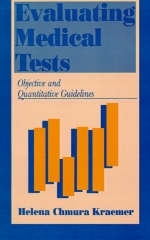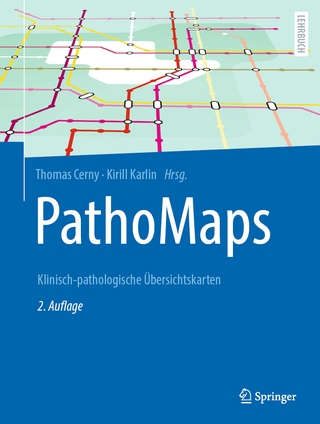A growing body of medical research suggests that many medical tests used for diagnosis, prognosis, and monitoring response to treatment are unnecessary or inappropriate, yield inaccurate or misleading results, and add to the incidence of iatrogenic disease. Many such tests go into common clinical use without convincing documentation of their value because current methods for evaluating medical tests produce inconsistent results. Evaluating Medical Tests presents a systematic, objective methodology by which to determine the effectiveness of medical tests. Kraemer clearly and concisely shows how to define statistical terms and approaches consistently from study to study, how to stipulate statistical assumptions underlying various approaches, how to check for empirical validity, and how to judge the robustness of statistical outcomes, resulting in models that integrate many different approaches and extend the strengths of each. Statisticians, evaluators, researchers, practitioners, policymakers, and advanced students concerned with the evaluation of medical tests used to make clinical decisions for patient care and for research will find this essential, thought-provoking reading. "This volume is a pleasure to read. It succinctly combines carefully reasoned conceptualization with the mathematical methods for addressing test evaluation problems. With clinically relevant, illustrative examples, it draws on the author′s extensive experience and research in biomedical statistics. It should be required reading for medical students and practitioners. It is invaluable to researchers and statisticians, and it provides a logical, scientific basis for efforts at medical cost containment. It is a classic! --from the Foreword by A. John Rush, M.D. "This fascinating book integrates a wide range of statistical and methodological concepts, reflects a thorough introduction to the issues confronted by evaluators of [medical] tests, and challenges motivated readers to adopt these procedures in their own research. This is an exciting book, with obvious strong policy implications concerning the way that [medical] tests are evaluated and the need for standards in this regard. . . . Evaluating Medical Tests should be of interest to all professionals who depend on tests as an adjunct in the decision-making process." --Paul R. Yarnold Northwestern University Medical School "Dr. Kraemer has undertaken a most massive and laudable task in writing Evaluating Medical Tests. . . . Dr. Kraemer′s book stands as a flagship for those concerned to understand the reasons behind our escalating health care costs and the implications this holds for every American. . . . This leads us to one of the innovative features of Dr. Kraemer′s book: ′This is not merely a statistical issue, or merely a medical issue, it is a national policy issue of the greatest importance.′. . . She does not assume that her readers are either statisticians or physicians. As such, she skillfully guides one through the terrain of medical and statistical jargon and points our where the assumptions of the statistics are either not stipulated or incongruent with the medical test and data being evaluated, thus rendering results and interpretations suspect. Another plus of Dr. Kraemer′s writing is her willingness to use ′. . . the first person singular to differentiate . . . comments from presentations of what I would consider provable or documentable facts. . . ′ In so doing, she raised issues and calls medical professionals, policymakers, and patients into dialogue to consider the impact of the use of these various techniques in diagnosis. . . . Evaluating Medical Tests is of specific relevance to rehabilitation counselors who proceed with their clients through the maze of diagnostic and prognostic tests. . . . It is especially important for rehabilitation counselors who act as expert witnesses to have a working knowledge of this material to enhance their discussions with health care personnel." --Journal of Applied Rehabilitation Counseling
Helena Chmura Kraemer is professor emerita of biostatistics in the Department of Psychiatry and Behavioral Sciences at Stanford University. She earned her BA in mathematics from Smith College, attended Manchester University on a Fulbright Scholarship, and received her PhD in statistics from Stanford University. Kraemer’s specific research interests include improvement to randomized clinical trial methodology, assessment of reliability and validity of diagnoses and clinical measurement, and developing mathematical models for specific problems in behavioral and clinical research. She has published extensively in the behavioral as well as statistical literature. Kraemer has received the Harvard Prize in Psychiatric Biostatistics and Epidemiology (2001), the Andrew C. Leon Distinguished Career Award (2014), an Honorary Doctor of Science from Wesleyan University (2014), and is a member of the Institute of Medicine, National Academy of Sciences (2003). In retirement, she continues to serve on several editorial boards, and consult on research projects.
Introduction
Disorder and Diagnosis
Definition
Test Protocol, Response, Referent
Families of Test Referents
Population and Sampling
Sensitivity and Specificity
The Signal Detection Approach
Predictive Values
The Bayesian Approach, Risk Ratios and Odds Ratio
Efficiency
Choosing Clinically Optimal Tests
Taking Test Costs into Account
Costworthy Tests
Basic Issues in Using Multiple Tests
Evaluating Batteries of Medical Tests
Optimal Sequences
Evaluating Batteries of Medical Tests
Optimal Scores
Evaluating Batteries of Prognostic Tests with Variable Follow-Up Times
Evaluation of Medical Tests
The Past, Present and Future



